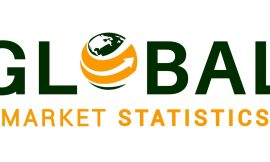Infertility is a challenging journey that affects many couples, often leading to emotional and physical stress. While conventional medical treatments can be effective, many individuals are turning to complementary therapies like acupuncture for infertility to enhance their reproductive health. This ancient practice, rooted in Traditional Chinese Medicine (TCM), offers a holistic approach that addresses the mind-body connection and aims to optimize fertility.
Table of Contents
ToggleUnderstanding Infertility
Infertility is typically defined as the inability to conceive after a year of unprotected intercourse. It can result from various factors, including hormonal imbalances, structural issues, lifestyle choices, and age-related changes. For women, conditions such as polycystic ovary syndrome (PCOS), endometriosis, and irregular menstrual cycles can contribute to fertility challenges. For men, factors like low sperm count, hormonal issues, and lifestyle choices may play a role.
The emotional toll of infertility can be significant, leading to anxiety, depression, and feelings of isolation. As couples navigate this difficult path, many seek additional support and alternative therapies to improve their chances of conception.
How Acupuncture Works
Acupuncture involves the insertion of thin needles into specific points on the body to promote the flow of Qi (pronounced “chee”), or vital energy. According to TCM, blockages or imbalances in Qi can lead to health issues, including infertility. By stimulating these points, acupuncture aims to restore balance and support the body’s natural healing processes.
Research suggests that acupuncture can positively impact fertility in several ways:
- Regulating Hormones: Acupuncture may help balance hormonal levels, which is crucial for ovulation and sperm production. This can be particularly beneficial for women with irregular cycles or conditions like PCOS.
- Improving Blood Flow: Enhanced blood circulation to the reproductive organs can promote healthy ovarian function and improve the uterine lining’s receptivity for implantation.
- Reducing Stress: The emotional stress associated with infertility can hinder fertility. Acupuncture is known for its calming effects, helping to reduce anxiety and promote relaxation, which can create a more favorable environment for conception.
- Supporting IVF Success: Many couples undergoing in vitro fertilization (IVF) incorporate acupuncture into their treatment plans. Research indicates that acupuncture may improve outcomes by increasing blood flow to the uterus and enhancing embryo implantation.
The Acupuncture Experience
When seeking acupuncture for infertility, it’s essential to choose a qualified practitioner who understands both TCM and reproductive health. During your initial consultation, the acupuncturist will assess your overall health, medical history, and specific fertility concerns. This holistic evaluation may include questions about your menstrual cycle, lifestyle, and emotional well-being.
The treatment plan may involve regular acupuncture sessions, typically lasting 30 to 60 minutes. Needles are inserted at various points, often including areas like the lower abdomen, lower back, and ears. Many patients find the experience relaxing, with some even falling asleep during treatment.
In addition to acupuncture, your practitioner may recommend lifestyle changes, dietary adjustments, and herbal remedies to further support your fertility journey. These recommendations are personalized based on your unique situation.
Evidence Supporting Acupuncture for Infertility
Numerous studies have explored the efficacy of acupuncture in enhancing fertility. A systematic review published in the journal Fertility and Sterility found that acupuncture significantly improved pregnancy rates among women undergoing IVF. Another study indicated that women who received acupuncture in conjunction with fertility treatments experienced higher rates of successful implantation and clinical pregnancy.
While more research is needed to understand the mechanisms behind these effects fully, the growing body of evidence supports acupuncture as a valuable complementary therapy for those facing infertility.
Integrating Acupuncture into Your Fertility Journey
Acupuncture can be integrated into your fertility journey in various ways:
- Preconception Care: For those planning to conceive, starting acupuncture treatments before attempting to conceive can help optimize reproductive health.
- During IVF: Many clinics offer acupuncture services as part of their IVF protocols, often scheduling sessions before and after embryo transfer.
- Supporting Overall Health: Acupuncture can be beneficial for overall wellness, promoting relaxation and reducing the stress that often accompanies the fertility journey.
Conclusion
Acupuncture for infertility offers a holistic approach to enhancing reproductive health, addressing both physical and emotional aspects of fertility. By promoting hormonal balance, improving blood flow, and reducing stress, acupuncture can support individuals and couples on their journey to conception.
If you’re facing fertility challenges, consider exploring acupuncture as a complementary therapy. Collaborating with a knowledgeable practitioner can help create a tailored plan that addresses your unique needs and goals, ultimately guiding you toward a healthier and more balanced reproductive journey.
Author: Hannah Integrative Health
At Hannah Integrative Health, we specialize in holistic healing through expert acupuncture and integrative medicine. Located in Newport Beach, CA, our dedicated team, led by Dr. Milim Jeon and Dr. Jun Yoo, combines traditional and modern techniques to promote wellness, fertility, and overall health, providing exceptional care for our valued patients.




